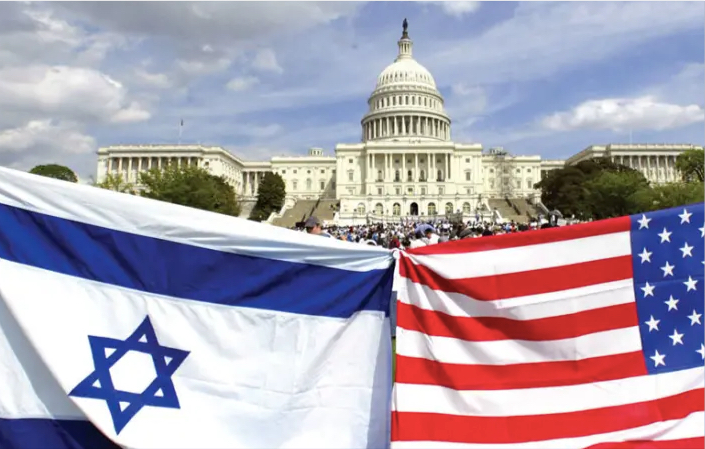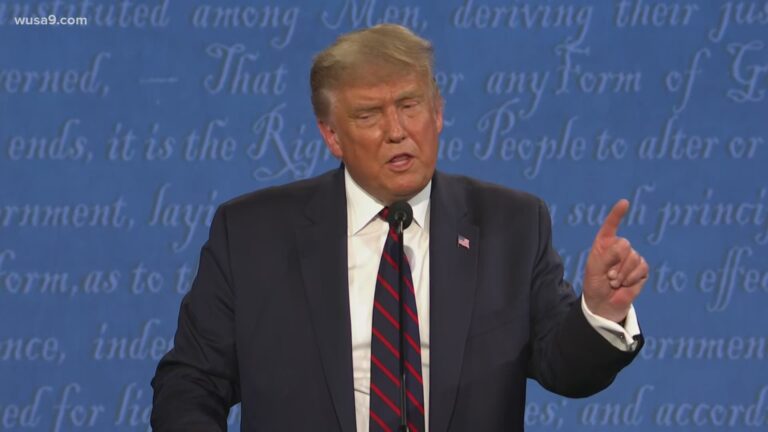
By:Air
STRATEGIC ASSESSMENT- The author is not defending anyone Just reminding America to be mature and manly, January 2003 he United States invaded Iraq and left a trail of destruction and chaos in the country and the region, one aspect of the war remains criminally underexamined: why was it fought in the first place? What did the Bush administration hope to get out of the war?
The official, and widely-accepted, story remains that Washington was motivated by Saddam Hussein’s weapons of mass destruction (WMD) programme. His nuclear capabilities, especially, were deemed sufficiently alarming to incite the war. As then US Secretary of State Condoleezza Rice said, “We do not want the smoking gun to be a mushroom cloud.”
Despite Saddam not having an active WMD programme, this explanation has found support among some International Relations scholars, who say that while the Bush administration was wrong about Saddam’s WMD capabilities, it was sincerely wrong. Intelligence is a complicated, murky enterprise, the argument goes, and given the foreboding shadow of the 9/11 attacks, the US government reasonably, if tragically, misread the evidence on the dangers Saddam posed.
There is a major problem with this thesis: there is no evidence for it, beyond the words of the Bush officials themselves. And since we know the administration was engaged in a widespread campaign of deception and propaganda in the run-up to the Iraq war, there is little reason to believe them.
My investigation into the causes of the war finds that it had little to do with fear of WMDs – or other purported goals, such as a desire to “spread democracy” or satisfy the oil or Israel lobbies. Rather, the Bush administration invaded Iraq for its demonstration effect.
A quick and decisive victory in the heart of the Arab world would send a message to all countries, especially to recalcitrant regimes such as Syria, Libya, Iran, or North Korea, that American hegemony was here to stay. Put simply, the Iraq war was motivated by a desire to (re)establish American standing as the world’s leading power.
Indeed, even before 9/11, then-Secretary of Defense Donald Rumsfeld saw Iraq through the prism of status and reputation, variously arguing in February and July 2001 that ousting Saddam would “enhance US credibility and influence throughout the region” and “demonstrate what US policy is all about”.
These hypotheticals were catalysed into reality by September 11, when symbols of American military and economic dominance were destroyed. Driven by humiliation, the Bush administration felt that the US needed to reassert its position as an unchallengeable hegemon.
The only way to send a message so menacing was a swashbuckling victory in war. Crucially, however, Afghanistan was not enough: it was simply too weak a state. As prison bullies know, a fearsome reputation is not acquired by beating up the weakest in the yard. Or as Rumsfeld put it on the evening of 9/11, “We need to bomb something else to prove that we’re, you know, big and strong and not going to be pushed around by these kinds of attacks.”
Moreover, Afghanistan was a “fair” war, a tit-for-tat response to the Taliban’s provision of sanctuary to al-Qaeda’s leadership. Rumsfeld, Deputy Secretary of Defense Paul Wolfowitz, and Under Secretary of Defense for Policy Douglas Feith considered restricting retaliation to Afghanistan dangerously “limited”, “meager”, and “narrow”. Doing so, they alleged, “may be perceived as a sign of weakness rather than strength” and prove to “embolden rather than discourage regimes” opposed to the US. They knew that sending a message of unbridled hegemony entailed a disproportionate response to 9/11, one that had to extend beyond Afghanistan.
US lawmakers condemn Ukraine invasion, call for swift sanctions
Key United States lawmakers were quick to condemn Russia’s invasion of Ukraine, calling for swift sanctions against Moscow, President Vladimir Putin, and elites in his inner circle.
President Joe Biden and his top aides had vowed to impose severe penalties on Russia if invades its neighbour, and with an apparent full-scale Russian attack that started late on Wednesday, top legislators from both US major parties are calling for serious consequences for Moscow.Why Usa.
America is very arrogant and doesn’t correct what was done before This is a question that has yet to be answered.
Why is the US unequivocal in its support for Israel?
With Israel attacking Gaza for a second week, United States President Joe Biden and his administration are sticking to a long-established script in Washington, expressing unequivocal support for Israel and its “legitimate right to defend itself” from Hamas rocket attacks.
That narrative fails to acknowledge the profound advantages the state of Israel enjoys over the Palestinians when it comes to military prowess, wealth and resources. It also turns a deaf ear to growing cries from progressive Democrats in Congress to take a harder line with Israel over its military assault on Gaza.
This latest escalation in violence has killed at least 213 Palestinians, including 61 children, while ten Israelis have died, including two children,
So why is the US so unwavering in its support for Israel?
When did the US start supporting Israel?
From the beginning. Former US President Harry Truman was the first world leader to recognise Israel when it was created in 1948.
Why was Truman so quick to do that?
In part because of personal ties. Truman’s former business partner, Edward Jacobson, played a pivotal role in laying the groundwork for the US in recognising Israel as a state. But there were also strategic considerations driving the decision.
What were the strategic stakes at the time?
This was right after World War II, when the Cold War between the US and the Soviet Union was taking shape.
The Middle East, with its oil reserves and strategic waterways (think the Suez Canal) was a key battleground for superpower hegemonic influence. The US was taking over from severely weakened European powers as the primary western power broker in the Middle East.
But even then, support for Israel was not unequivocal.
So when did it become unequivocal?
That is partly rooted in the aftermath 1967 war in which Israel defeated the poorly led armies of Egypt, Syria and Jordan and occupied the rest of historical Palestine – as well as some territory from Syria and Egypt.
Since then, the US has acted unequivocally to support Israel’s military superiority in the region and to prevent hostile acts against it by Arab nations.
Were there other developments that played a role?
There was also the 1973 war that ended with Israel defeating Egyptian and Syrian forces.
Partly to drive a wedge between Egypt and Syria and thwart Soviet influence, the US used the aftermath of the 1973 war to lay the groundwork for a peace deal between Israel and Egypt that was eventually cemented in 1979.
Has that influenced US aid to Israel?
You bet. Israel is the largest cumulative recipient of US foreign aid in the post-World War II era.
In 2016, then-President Barack Obama signed a defence agreement with Israel providing $38bn in US military support over 10 years including funding for the Iron Dome missile defence system.
Bear in mind, Israel is not exactly in need of aid. It is a high-income country with a thriving high-tech sector.
Is this all just about practical geostrategic stuff?
Like all things foreign policy-related, public opinion, money – and the influence money buys in politics – have also played a role in US policy towards Israel and the Palestinians.
What role has public opinion played?
American public opinion has long tilted in favour of Israel and against the Palestinians, in part because Israel had a superior PR machine. But headline-grabbing, violent actions by pro-Palestinian groups such as the 1972 Munich Massacre in which 11 Israeli Olympic athletes were killed also generated sympathy for Israel.
Has that sympathy wavered at all?
More Americans are warming to the Palestinian cause, according to an annual survey conducted by Gallup.
The February poll found that 25 percent of Americans sympathise more with Palestinians – a 2-percentage-point increase over the previous year and a full six percentage points higher than 2018.
Favourable ratings for the Palestinian Authority also hit a new high of 30 percent – a 7-percentage-point improvement over 2020.
But Israel still holds far more sway in the court of US public opinion.
That same Gallup poll found that 58 percent of Americans sympathise more with Israel, while 75 percent of Americans rate Israel favourably.
Why doesn’t America defend Palestine? …Because America is a Muslim country







